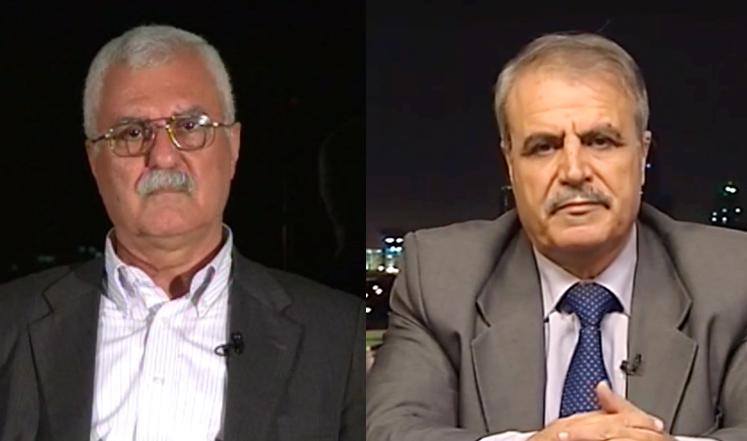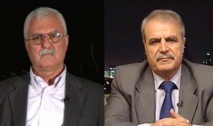World powers agreed last year in Vienna on an 18-month roadmap that would lead to the peace talks, a transitional government and then elections.
But the office of UN Syria envoy Staffan de Mistura, who is hosting the talks, said the January 25 deadline for the start of talks would probably be missed.
"It is likely the 25th may slip by a few days for practical reasons," Jessy Chahine, a spokeswoman for de Mistura, told AFP in an email.
"We are still aiming for that date and we will in any event assess progress over the weekend," she said.
US Secretary of State John Kerry said he was confident the talks would go ahead as planned.
"It may be a day or two for invitations but there is not going to be a fundamental delay," Kerry said on the sidelines of meetings at the World Economic Forum in Davos, Switzerland.
"The process will begin on the 25th and they will get together and see where we are," he said.
Diplomats appeared to be scrambling to resolve the key question of who will represent Syria's fractious opposition at the talks with President Bashar al-Assad's regime.
- 'Provocative step' -
The main coalition of opposition bodies, the High Negotiations Committee, announced a delegation to the talks on Wednesday but its composition quickly came under fire.
The group named Mohamed Alloush, a political leader of the Saudi-backed Islamist armed group Jaish al-Islam, as its chief negotiator at the talks.
The National Coordinating Committee for Democratic Change, a key opposition body still present in Damascus, said it was "not acceptable" for the delegation's chief to come from the armed opposition.
"This sends the wrong political message to the Syrian people," it said.
The pro-regime Al-Watan daily called Alloush's appointment "a provocative step with the sole goal of thwarting any possible dialogue".
Syria's ally Russia has said it considers Jaish al-Islam as a "terrorist" group.
But a French diplomatic source said the opposition would lack credibility if it was "not represented by forces on the ground" such as Jaish al-Islam.
There is also disagreement, however, over whether the opposition will be represented by one or two delegations.
The High Negotiations Committee insists it must be the sole opposition representative, but other opposition figures and Syria's Kurds have been excluded from its ranks and also want to participate in the talks.
Al-Watan reported that Russia was proposing a joint opposition delegation.
A Syrian government source meanwhile said the country's envoy to the United Nations, Bashar al-Jaafari, would serve as the regime's chief negotiator at the talks.
Jaafari had the same role in a previous round of peace talks in Geneva in 2014.
- Coalition to 'accelerate' strikes -
The latest push for peace talks has been coupled with promises of increased military action against jihadists with the Islamic State group in Syria and Iraq.
French President Francois Hollande said Thursday that the US-led coalition waging a bombing campaign against IS would "accelerate" air strikes on the group.
"The pace of the interventions will be accelerated and France will play its role in this," Hollande said in a speech to ambassadors.
After meeting with key allies in Paris on Wednesday, US Defence Secretary Ashton Carter vowed to crush what he called the IS "cancer" by "collapsing its two power centres in Raqa (in Syria) and Mosul (in Iraq)."
Around 22,000 jihadists have been killed by the US-led coalition since mid-2014, France's Defence Minister Jean-Yves Le Drian said.
On the humanitarian front, the UN High Commissioner for Refugees to Syria, Filippo Grandi, appealed Thursday for all parties to allow access for humanitarian organisations to besieged areas.
"People need our help. Another case of a child dying of starvation would be terrible," said Grandi, who met Foreign Minister Walid Muallem and visited a clinic for the displaced on his first visit to Damascus as UN humanitarian chief.
-----------------------------------------------------------------------------------------------------
But the office of UN Syria envoy Staffan de Mistura, who is hosting the talks, said the January 25 deadline for the start of talks would probably be missed.
"It is likely the 25th may slip by a few days for practical reasons," Jessy Chahine, a spokeswoman for de Mistura, told AFP in an email.
"We are still aiming for that date and we will in any event assess progress over the weekend," she said.
US Secretary of State John Kerry said he was confident the talks would go ahead as planned.
"It may be a day or two for invitations but there is not going to be a fundamental delay," Kerry said on the sidelines of meetings at the World Economic Forum in Davos, Switzerland.
"The process will begin on the 25th and they will get together and see where we are," he said.
Diplomats appeared to be scrambling to resolve the key question of who will represent Syria's fractious opposition at the talks with President Bashar al-Assad's regime.
- 'Provocative step' -
The main coalition of opposition bodies, the High Negotiations Committee, announced a delegation to the talks on Wednesday but its composition quickly came under fire.
The group named Mohamed Alloush, a political leader of the Saudi-backed Islamist armed group Jaish al-Islam, as its chief negotiator at the talks.
The National Coordinating Committee for Democratic Change, a key opposition body still present in Damascus, said it was "not acceptable" for the delegation's chief to come from the armed opposition.
"This sends the wrong political message to the Syrian people," it said.
The pro-regime Al-Watan daily called Alloush's appointment "a provocative step with the sole goal of thwarting any possible dialogue".
Syria's ally Russia has said it considers Jaish al-Islam as a "terrorist" group.
But a French diplomatic source said the opposition would lack credibility if it was "not represented by forces on the ground" such as Jaish al-Islam.
There is also disagreement, however, over whether the opposition will be represented by one or two delegations.
The High Negotiations Committee insists it must be the sole opposition representative, but other opposition figures and Syria's Kurds have been excluded from its ranks and also want to participate in the talks.
Al-Watan reported that Russia was proposing a joint opposition delegation.
A Syrian government source meanwhile said the country's envoy to the United Nations, Bashar al-Jaafari, would serve as the regime's chief negotiator at the talks.
Jaafari had the same role in a previous round of peace talks in Geneva in 2014.
- Coalition to 'accelerate' strikes -
The latest push for peace talks has been coupled with promises of increased military action against jihadists with the Islamic State group in Syria and Iraq.
French President Francois Hollande said Thursday that the US-led coalition waging a bombing campaign against IS would "accelerate" air strikes on the group.
"The pace of the interventions will be accelerated and France will play its role in this," Hollande said in a speech to ambassadors.
After meeting with key allies in Paris on Wednesday, US Defence Secretary Ashton Carter vowed to crush what he called the IS "cancer" by "collapsing its two power centres in Raqa (in Syria) and Mosul (in Iraq)."
Around 22,000 jihadists have been killed by the US-led coalition since mid-2014, France's Defence Minister Jean-Yves Le Drian said.
On the humanitarian front, the UN High Commissioner for Refugees to Syria, Filippo Grandi, appealed Thursday for all parties to allow access for humanitarian organisations to besieged areas.
"People need our help. Another case of a child dying of starvation would be terrible," said Grandi, who met Foreign Minister Walid Muallem and visited a clinic for the displaced on his first visit to Damascus as UN humanitarian chief.
-----------------------------------------------------------------------------------------------------









 Home
Home Politics
Politics











